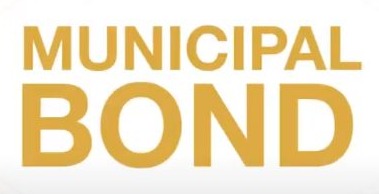Hello friends, today here we are discussing about Are Municipal Bonds Taxable or the tax benefits of Municipal Bonds.
Essentially, a municipal bond, or muni, is a loan a local government receives from an investor.
In return for this loan, the investor receives regular interest payments until the bond reaches maturity. At this point, the original investment, or principal, is returned in full.
Many investors choose munis because they provide tax benefits.
Unlike most other fixed-income investments, interest payments on munis are typically exempt from federal taxes, and possibly state and local taxes, depending on your location.
While munis generally offer lower yields than corporate or treasury bonds, the interest is usually tax-free. This unique characteristic of muni bonds can make them a more attractive (and more profitable) investment than other bonds.
Let's look at an example:
Suppose an investor is trying to decide between a corporate bond offering a 3% yield and a muni offering a 2% yield. While the muni offers a lower yield, the income it provides is tax-free.
So which investment is better for our investor?
Well, it depends on her tax bracket and the state she lives in.
For example, suppose our investor is in a Federal tax bracket that deducts 35% of all her investment earnings.
Because she doesn't need to pay these taxes on her muni bond earnings, this bond has a face value of 2% but a tax-equivalent yield of around 3.08%.
Additionally, supposing our investor lives in a state where the yield is also state-tax free, the benefit would be even greater.
Like other bonds, each muni bond is assigned a rating by a third-party agency. These ratings help investors know how risky a bond is.
Higher rated bonds are less likely to default than lower-rated bonds.
However, safer investments typically generate lower returns and vice versa.
In addition to buying individual bonds, investors can also invest in muni bonds by purchasing shares of bond funds that invest in several municipal bonds.
Bond funds include both mutual funds and exchange-traded funds, or ETFs. Bond funds offer several advantages over individual bonds.
Typically, a share in a bond fund is less expensive than an individual bond, and as a result, has a lower cost of entry.
Also, a bond fund invests in numerous bonds, so they offer built-in diversification, which can help lower risk.
However, with a bond fund, you are required to pay management fees, which lower your returns. Investors should research bond funds before they invest.
This research might include investigating third-party ratings of the fund, reviewing past performance, and reading the bond's prospectus.
The prospectus is a document that states the fund's strategies, goals, and fees. Munis have the same risks as other types of bonds.
These include default risk the chance that the bond issuer won't be able to make payments or repay the bond's principal interest rate risk the chance that rising interest rates will devalue a bond sold before maturity and inflation risk the chance that rising inflation will lower the purchasing power of a still-maturing bond.
One risk specific to munis is the chance that an investor's tax liability will drop.
For example, many investors find themselves in a lower tax bracket when they retire.
This means if the muni was purchased before retirement, the tax benefit may not be as significant. In this event, the investor might profit more from a taxable, higher yield investment, like a corporate bond.
Even with these risks, many invest in municipal bonds for their tax breaks, as well as their overall low risk.
Fixed-income investments like municipal bonds, along with other types of bonds and CDs are part of a well-balanced portfolio.
Note:- This post is only for education purpose and it is no endorsement of any investment or not a particular recommendation or investment strategy.







0 Comments